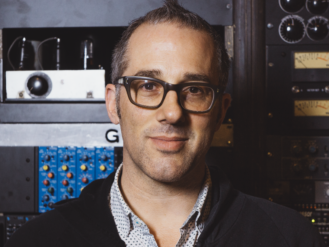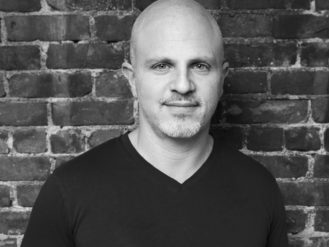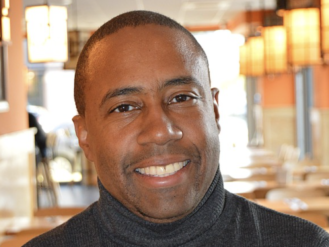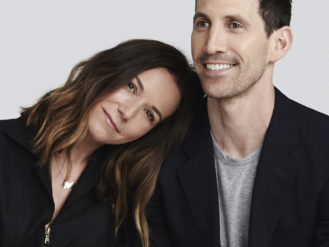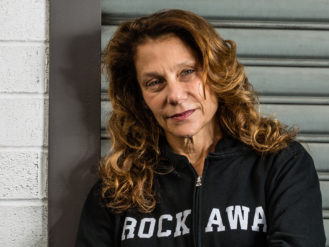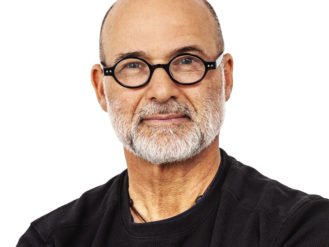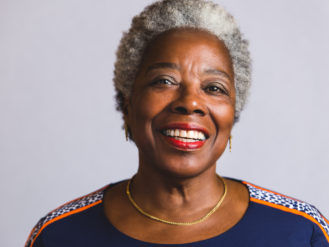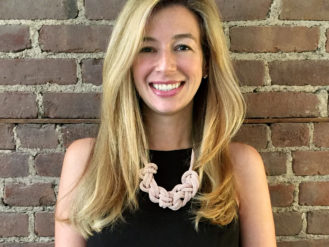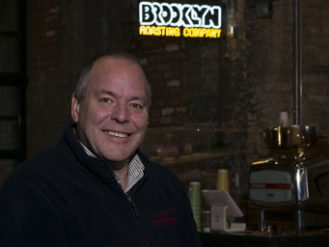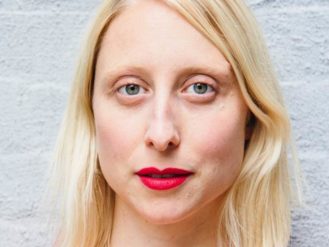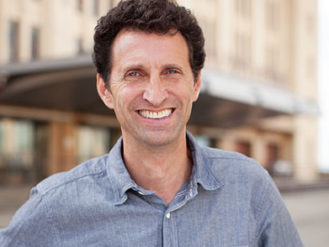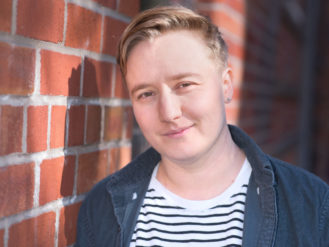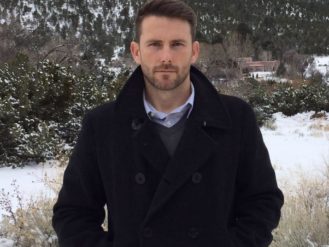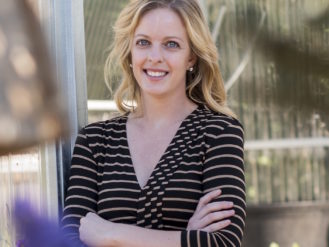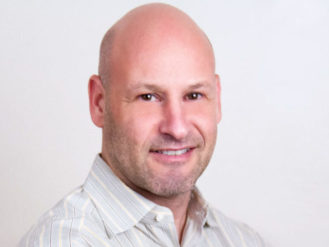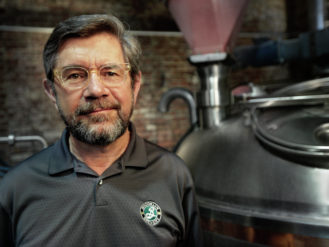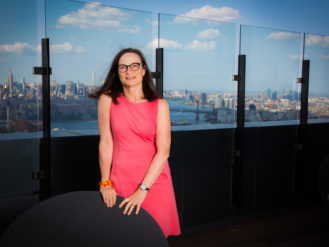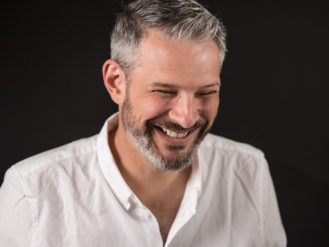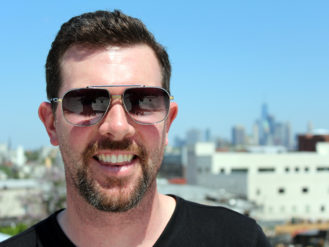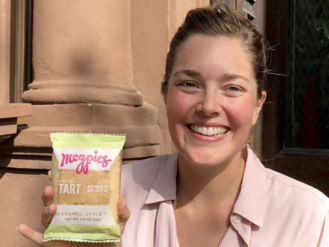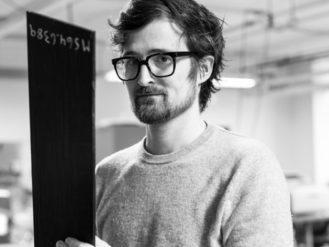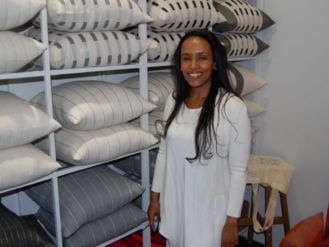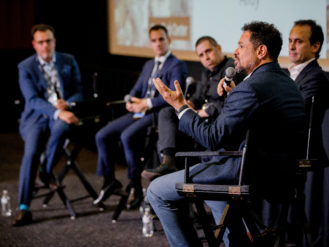Chelsea Brownridge, co-founder, Dog Parker
Her venture created a safe place to put your pet while you're shopping
Says Brownridge: "It's been a good exercise in expectation setting, resiliency and just keeping going ahead" (Photos courtesy of Dog Parker)
Chelsea Brownridge has had dogs her whole life, but it wasn’t until moving from North Carolina to Brooklyn with her current dog, Winston, that she realized just how often dog owners have to leave their furry friends at home. Planning a day of walking around Prospect Park, she realized that if the trip were to include even a quick stop at a coffee shop, Winston wouldn’t be able to come along. By law, shops that serve food generally don’t allow pets. “Why hasn’t this been solved?,” Brownridge asked herself. “I was shocked to find that nobody had.”
In 2015, the problem gave rise to a new business. Brownridge and two partners founded Dog Parker, the Brooklyn startup known for pioneering pay-by-the-minute dog houses. Shaped like little homes with gable roofs, the climate-controlled containers come equipped with a live camera that connects to a pet-owner’s phone, ultraviolet light to kill germs between stays, and easy accessibility with an app and membership card. Nearly 50 of the dog houses were placed outside participating businesses.
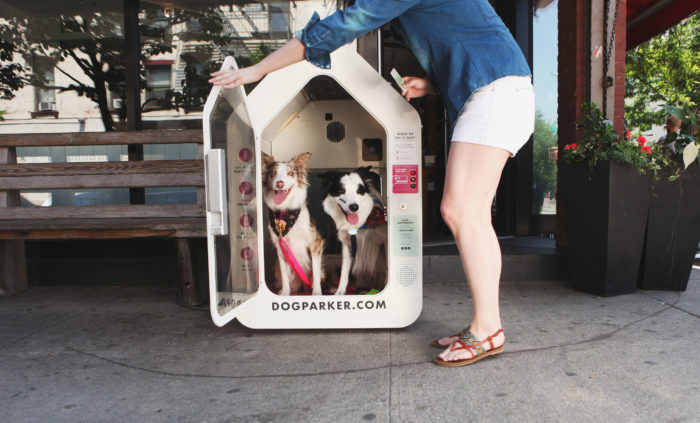
A Dog Parker with double occupancy outside a Williamsburg cafe (Photos courtesy of Dog Parker)
Brownridge’s idea came at a fortuitous moment in the evolution of technology, she says. “It’s just now possible in the last few years to really be able to connect physical devices via the internet in a stable, secure way and we are still learning how to do that better,” she said in our podcast. A few years ago, it wouldn’t have been possible for their houses “to be truly the safest, cleanest, most comfortable place for your dog.”
The team took two years to go from the original prototype to the first manufactured model. “There were enough off-the-shelf components for what we needed to do that we’d be able to bootstrap it, which means fund it ourselves off of savings and credit cards and, unfortunately, my 401(k).” In her years of prototyping, Brownridge had to consider all sorts of factors, from location to dog happiness to customer anxiety about safety protocol. In her research, she has learned not only a lot about sidewalk laws, but also what makes a community thrive. “Dogs are responsible for more social connection in communities than church and children,” she observed. She and her partners found that the houses not only boosted community interaction by bringing dogs outdoors more often, but they also boosted revenue at the businesses they partnered with.
But then their venture hit a major snag. Last November, the New York City Department of Transportation (DOT) told Dog Parker that its houses were not compliant with sidewalk regulations and would have to be removed. The timing was ironic. “We first heard from the DOT while we were in Barcelona on behalf of the mayor’s office, presenting as a New York City smart-city technology,” Brownridge recalls. “And that was the first time we heard from anyone at [the DOT] that there was a problem.”
In February, the company picked up all of its NYC dog houses. Brownridge isn’t concerned about finding her way back, though, and already has ten other cities signed up for the service and interest from malls and other property developments. “We want to continue working with cities in a collaborative way, so for us to put up any kind of unnecessary fight at this time would have been too adversarial,” she said. “We are now going the legislative route which allows us to create a new ordinance, a new law where Dog Parkers can be on the sidewalk. It’s a multi-month process.” Brownridge says that the company’s hope is that “if that legislation passes, we will be back. We are finding a way in, like a lot of other resilient founders,” she said. “It’s been a good exercise in expectation setting, resiliency and just keeping going ahead.”–By Kora Feder
Podcast: Play in new window | Download
Subscribe: Apple Podcasts | RSS





